Pipeline
ATA3219
ATA3219: Off-the-Shelf Allogeneic CD19 Program for Hematological and Autoimmune B-Cell Malignancies
-

-
- ATA3219 consists of allogeneic Epstein-Barr virus (EBV)-sensitized T cells that express a second generation CD19 CAR construct
- Currently under investigation in CD19+ relapsed or refractory B-cell malignancies, including B-cell non-Hodgkin’s lymphoma and B-cell mediated autoimmune diseases including systemic lupus erythematosus (SLE) with kidney involvement (lupus nephritis)
- ATA3219 manufacturing is based on clonally expanded EBV T cells, inherently having lower potential for alloreactivity
- 1XX signaling domain optimizes expansion and mitigates T-cell exhaustion
- ATA3219 CAR T cells have been designed for T-cell memory, expansion, and anti-tumor efficacy1
- In vitro data reflect the CD19 antigen-specific functional activity of ATA3219 and CAR-mediated activity against B cells from SLE patients. ATA3219 led to CD19-specific B-cell depletion compared to controls2
- Academic program generated proof-of-principle for an earlier-generation allogeneic CD19 targeted CAR EBV T-cell construct in relapsed/refractory B-cell malignancies after stem cell transplant.3
- Pham, C, et al. Abstract presented at Transplantation & Cellular Therapy (TCT) Meetings; 2023
- Atara internal unpublished data
- Curran KJ, et al. ASH 2023
ATA3219
ATA3219 is an allogeneic anti-CD19 chimeric antigen receptor (CAR) T-cell therapy, currently in clinical development, leveraging the EBV T-cell platform and features a next-generation 1XX co-stimulatory domain, memory phenotype, and unedited T-cell receptor.
Oncology
- Program/Indication
- Pre-clinical
- Phase 1
- Phase 2
- Phase 3
-
-
- ATA3219 is currently being investigated in a Phase 1 trial for subjects with relapsed/refractory B-cell Non-Hodgkin's Lymphoma. Initial clinical data anticipated Q1 2025 (NCT06256484).
Autoimmune
- Program/Indication
- Pre-clinical
- Phase 1
- Phase 2
- Phase 3
-
Lupus Nephritis (LN)Systemic Lupus Erythematosus (SLE) without lymphodepletion
-
-
- ATA3219 Phase 1 study initiation for subjects with lupus nephritis planned for Q4 2024. Initial clinical data expected in mid-2025 (NCT06429800).
- Initiation of ATA3219 cohort without lymphodepletion in systemic lupus erythematosus planned for Q4 2024, with initial clinical data expected in mid-2025.
Next-Generation CAR T Technology
Our CAR T pipeline is rapidly expanding with novel technologies and next-generation, multi-targeted CAR T immunotherapies thanks to our collaboration with Memorial Sloan Kettering Cancer Center.